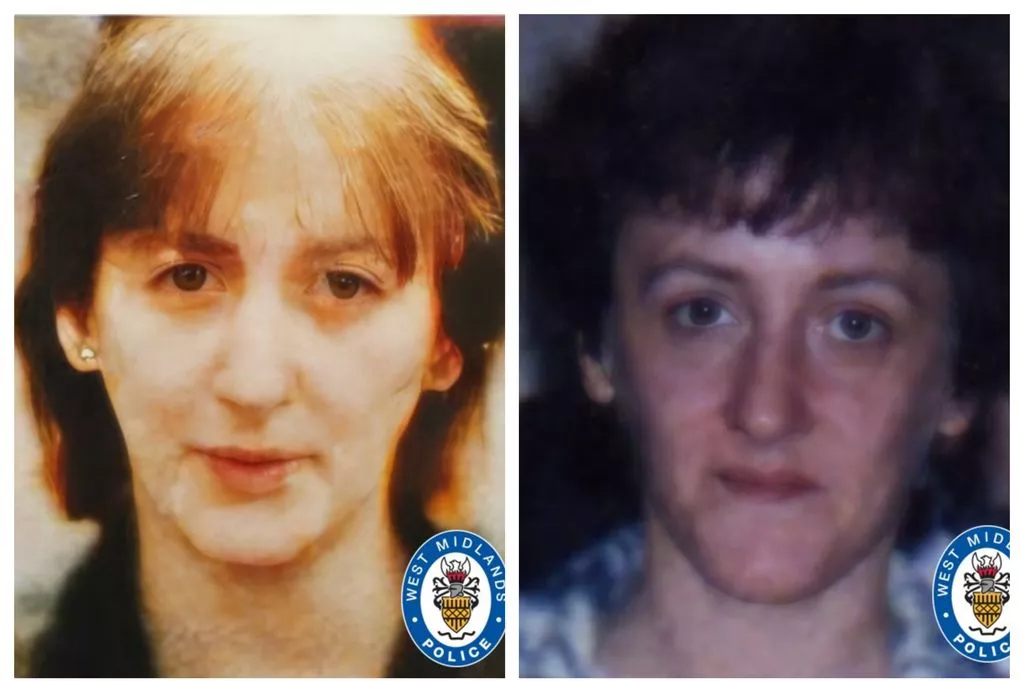2025.3.10 Teenager, 17, murdered sister with ADHD because she was ‘annoying’
Mali Bennett-Smith is named by judge and sentenced to a minimum 10 years and five months in prison

A teenager stabbed to death his older sister who had ADHD because she was “annoying”.
Mali Bennett-Smith, 17, was jailed for a minimum term of 10 years and five months after pleading guilty to her murder at Bristol Crown Court on Monday.
The court heard that his sister Luka, 19, had agreed to let him practise a headlock on her.
But instead of letting go when she tapped him, as he had done on previous occasions, he continued to hold her before stabbing her repeatedly on Oct 2024 at their home in St Andrews, Bristol.
He rang emergency services 20 minutes later, shortly before 6.30pm, and told them: “I stabbed my sister to death.”
The court heard that he told operators: “I hated her my whole life and I don’t know, I just didn’t want to ever see her again.”
Judge William Hart said: “It’s often said in courtrooms when a child has died ‘It must be every parent’s worst nightmare’.
“The horror of the loss of their daughter at the hands of the son they still love is beyond even the worst nightmares.”
Dropped out of college course
The court heard that Bennett-Smith grew up on a remote farm in New Zealand, where he was home-schooled, but after his parents divorced, he moved to the UK with his sister and mother with the aim of going to college to prepare to join the Army.
He later dropped out of his college course.
He and his sister were at home on their own when the killing took place.
Bennett-Smith later told police that his sister was “annoying” and he felt she bullied him.
He said: “After watching a video, I went downstairs to the lounge and I asked Luka if I could practise a headlock on her.
“She agreed, we have done this before and when she needed me to stop we had an agreement where she would tap me on the arm.
“On this occasion I had decided I was not going to stop, I wanted to kill her, I had enough with regards [to how] she had been treating me over the years and recently.”
‘Shocking and brutal’ killing
Sentencing him, the judge said: “The killing was shocking and brutal.
“It has deprived Luka of her life, your parents in effect of two of their children, and will deprive you of your liberty.”
He said the use of a knife, the fact Bennett-Smith “undoubtedly intended to kill” and the brutality were aggravating features.
Ray Tully KC, defending, said Bennett-Smith had severe dyslexia and dysgraphia and although he had an above-average IQ was found to have below-average “processing speed”.
He said: “Mali did not know how to manage his increasing feelings of frustration and resentment towards Luka.”
The judge lifted reporting restrictions on naming the defendant after an application by the PA news agency.
After the sentencing, Det Insp Nadine Partridge, of Avon and Somerset Police, said: “Our thoughts remain fully with Luka’s family at this difficult time. They continue to be updated and supported by specially trained family liaison officers.”
2025.3.10 Newport thief stole vodka, rum and steaks from Tesco

A THIEF stole vodka, rum, steaks, chocolate and candles during a £860 shoplifting spree at supermarkets and stores in Newport and Cwmbran.
Calum Edwards, 34, took goods to help him fund his spiralling drug addiction.
He admitted nine theft offences which occurred between November last year and February.
They included him stealing as follows:
Candles worth £80 from TK Maxx in Newport on November 8, 2024
Alcohol worth £280 from Sainsbury’s in Cwmbran on November 30, 2024
Alcohol worth £165 from Sainsbury’s in Cwmbran on December 10, 2024
Dairy Milk and Celebrations chocolates worth £53.10 from Stow Hill Service Station in Newport on December 15, 2024
Dairy Milk chocolate worth £72 from Tesco in Newport on December 29, 2024
Lenor Unstoppables scent boosters worth £18.60 from Tesco in Newport on January 4
Alcohol worth £132 from Tesco in Newport on January 21
Candles worth £40 from Boots in Newport on February 10
Steaks worth £21.48 from Sainsbury’s on February 10
Rose Glanville, prosecuting, told Cardiff Crown Court that Edwards took a de-tagging device with him to help him steal bottles of spirits.
During one of the thefts in a supermarket, the defendant changed clothes after going into his bag and putting on a hi-vis jacket.
The total value of the goods stolen was £862.18.
He has five previous convictions for eight offences which include making off without payment in 2008 and a burglary in August 2024 for which he was jailed for six months, suspended for 18 months.
Edwards’ barrister Jac Brown said: “The defendant’s offending came about as a result of his drug addiction.
“In 2023, he became homeless as a result of the breakdown of his relationship.
“He was an individual who had everything going for him in life – he had stable employment, stable accommodation and a young family.
“Mr Edwards remains optimistic about getting his life back on track – he has to break this addiction in order to do so.”
Judge Paul Hobson told the defendant: “It seems to me that there was some planning involved because of the de-tagging device that you were equipped with and also that on one occasion at least you were quickly to change clothes having committed the offence to divert attention from yourself.”
Edwards, of no fixed abode, Newport was jailed for nine months.
He is likely to serve 40 per cent of that sentence in custody before being released on licence.
The defendant will also have to pay a victim surcharge.
2025.3.9 Mystery over Dudley mum who vanished in 1998 and may have a different name today
The disappearance of Patricia Lashley, who was ‘very well known locally’, is one of the West Midlands’ longest-running missing person cases

Police have renewed an appeal for information on a mum-of-seven who went missing more than 25 years ago.
The disappearance of Patricia Lashley is one of West Midlands Police’s longest-running missing person cases.
Patricia was last seen in her flat in Hall Street, Dudley, in September 1998.
Despite extensive extensive enquiries to trace her, Patricia’s whereabouts remain unknown.
West Midlands Police said she was ‘very well known locally’.
Patricia would have been 33-years-old when she disappeared.
Today, WMP has issued an appeal on what would be her 60th birthday this weekend.
Patricia was known to friends as Pat or Jade.
She moved to Dudley in 1995, three years before her disappearance, and was known to frequent the No Limits club and other pubs in the area.
The last description of Patricia is white, 5ft 4ins tall, slim, with mousy brown hair
She spoke with a Geordie accent and had links to Newcastle, London, Wales and Scotland.
Detectives are not ruling out that she left Dudley for these areas.
Shedding more light on the case, a West Midlands Police spokesperson said: “Since Patricia’s disappearance, we have examined a mass of public records and information to try and find her.
“It is believed she may have also used the surname Bradford along with the first names Jade, Vanessa or Tricia.
“These images date from around the time of Patricia’s disappearance and we know she was very well known locally.
“We are hoping anyone who knew her at the time of her disappearance will be able to provide some fresh information to help with our enquiries.
“Patricia has not been heard from in 25 years and she has not appeared on any government systems, claimed any benefits or used any bank accounts in that time.
“Anyone with any information, no matter how small the detail, can contact us via 101 or LiveChat quoting PID number 31561.”
2025.3.8 Two women jailed over ill-treatment of residents at specialist dementia care home in Yorkshire

Two women have been jailed after being found guilty of the ill-treatment of residents at a care home in Yorkshire.
Helen Burridge and Amy Dickinson were found guilty after a 17-day trial which finished in September 2024. On Friday (Mar 7) they were both jailed.
Burridge, 62, of Greenfield Road, Holmfirth, was convicted of ill-treating four different residents whilst working as a care home manager at Riddlesden Rest Home in Keighley.
Dickinson, 24, of Fairfax Street, was convicted of ill-treating seven different residents whilst working as a senior care assistant at the same care home.
Riddlesden Rest Home was a specialist care home looking after up to 10 residents aged 65 and over. All but one of the residents at the home had dementia.
The care home was put into special measures following an investigation into their crimes and has subsequently closed down.
Both Burridge and Dickinson were jailed for 30 months at Bradford Crown Court.
Detective Constable Polly Churchman of Bradford District Police said: “We welcome the sentences handed down today to Burridge and Dickinson. These elderly residents should have been in a place of safety and should have been well cared for.
“The care they provided was appalling and fell way short of the high standards you would expect in a facility like this. I would like to praise the care worker who came forward and reported these crimes to us.
“This has been a lengthy investigation and I would like to pay tribute to the elderly residents and their families for their patience throughout the process and I hope todays sentence can give them some closure.”
2025.3.7 Sudbury fast food boss Ambrish Dogra guilty of raping girl
The boss of a fast-food restaurant in Sudbury who denied raping a teenager in a storeroom has been convicted by a jury.
Before Ipswich Crown Court on Thursday was 41-year-old was Ambrish Dogra of Layer Road, Colchester.
He denied raping the alleged victim, who was under 18 at the time, but was found guilty by a jury after six hours of deliberations.
Judge Nicola Talbot-Hadley adjourned sentence until March 21 and warned Dogra he was facing a “fairly significant custodial sentence”.
She allowed his bail to continue and ordered him to sign the sex offenders register on an interim basis.
Giving evidence during his trial, Dogra denied saying something about “friends with benefits” to the girl before kissing her and forcing her to perform oral sex on him.
He also denied showing the girl a condom and locking the door to the storeroom, where the incident happened.
The court heard Dogra had organised a Christmas party on December 8, 2020 and the girl went to the restaurant after school.
The defendant had brought alcoholic drinks for the party which was held in the stock room.
The victim went into the stock room and Dogra told her to get a drink and to “make it strong”.
Another member of staff who was there then went to the toilet, leaving Dogra alone with the girl.
When the member of staff came back, Dogra told her: “Give us a moment.”
Dogra had then locked the door and asked the girl for a kiss and because she felt scared she let him. She added it went on for a long time and he didn’t stop.
He then stepped back and exposed himself and began pushing her down, at which point he orally raped her, the court heard.
The girl told police after the incident she was in such shock that she didn’t do anything and didn’t know what to say.
She claimed that Dogra had pulled out a condom during the incident.
Dogra, who has no previous convictions, claimed the entire incident was “fabricated” and that his fast-food competitors might have got the girl to lie.
2025.3.6 Boy, 14, jailed for knifepoint sex attacks during three-week crime spree
Police said the boy displayed ‘predatory’ behaviour
A “predatory” 14-year-old boy who sexually assaulted two women while armed with a knife in Leicester has been jailed. The child, who cannot be named because of his age, targeted multiple victims in the Newfoundpool area during a three-week crime spree last summer, which also included an attempted robbery and multiple other offences.
Leicester Crown Court heard that the boy carried out the first attack on Wednesday, July 10, when he followed a woman before pushing her to the ground while holding a knife to her face. He then sexually assaulted her.
On Monday, July 29, the boy attempted to rob a woman in Stephenson Drive while he was believed to be armed with a knife. Police said he followed the victim onto a driveway before she managed to scream, causing him to run away.
The third attack took place in Rowan Street, where a woman became aware of someone following her. When she turned to confront the person, the boy, armed again with a knife, told her not to scream or he would kill her. He indecently exposed himself to her before sexually assaulting her. Disturbed by people leaving a nearby house, he ran off.
Officers caught the boy after extra patrols were put in place as part of the investigation, said a police spokesperson. He was stopped in Fosse Road North on Thursday, August 1, wearing the same coat, shoes and trousers seen in CCTV footage from all three incidents, and was found to be carrying a knife.
The boy pleaded guilty to multiple charges in August last year, and was back in court this week for sentencing. He admitted:
sexual assault on a female and possession of a knife blade/sharp pointed article in a public place on Wednesday, July 10, in Ruby Street;
attempted robbery and possession of a knife blade/sharp pointed article in a public place on Monday, July 29, in Stephenson Drive;
sexual assault on a female and possession of a knife blade/sharp pointed article in a public place on Wednesday, July 31, in Rowan Street; and
possession of a knife blade/sharp pointed article in a public place on Thursday, August 1, in Fosse Road North.
The boy, who was 13 at the time of the assaults, was sentenced to three years and six months at a Young Offender Institution when he appeared at Leicester Crown Court on Tuesday (March 4).
After the sentencing, Detective Constable Gemma Fox, who led the investigation, said: “These women were subjected to terrifying experiences by a teenager displaying predatory and aggressive behaviour. These women have shown immense courage in coming forward.
“Had the work the investigation team carried out not been done, we could easily have been looking at further offences and sadly more victims. It is hard to understand why a child of 13 years of age’s intent was on carrying out such shocking crimes and I hope the time he spends in custody will give him the opportunity to remorsefully think about what he has done, and the lasting [effect] his crimes have left on these women.”
2025.3.6 Predatory ‘pimp’ pleads GUILTY to inciting teenage girls into sex work
Christopher Oates admitted causing or inciting child prostitution, possessing a firearm with intent to cause fear of violence and causing or inciting prostitution for gain
A predatory ‘pimp’ has pleaded guilty to encouraging two teenage girls to go into ‘sex work’ using ‘drugs, coercion and violence’.
Christopher Oates ‘wooed them, charmed them, gave them cannabis, ecstasy and cocaine and introduced them to Manchester’s red-light district where they joined the desperate women selling themselves on street corners’, prosecutors previously told Manchester Crown Court.
The 44-year-old, from Stockport, initially denied seven charges including sexual activity with a child and inciting child prostitution concerning two ‘vulnerable’ teenage girls. After three days of the trial, he has today, March 6, changed his plea to guilty to offences of causing or inciting child prostitution, possessing a firearm with intent to cause fear of violence in respect one one victim and causing or inciting prostitution for gain in respect of a second victim.
Previously opening the case, prosecutor Gwen Henshaw told a jury that Oates, also known as ‘Nails ’because he could scoop cocaine with his ‘pinkie’ finger, is a ‘predatory man’ who used drugs, coercion and violence to sexually exploit and ‘pimp’ the two girls.
One of the victims was homeless and then living in care and was ‘besotted’ with the defendant as she thought he was her ‘boyfriend’. The second was doing bar work and hanging out in bars despite being underage’, the jurors were told. His accusers, now adults who cannot be named for legal reasons, had ‘both had a difficult childhood’.
Ms Henshaw said: “Christopher Oates identified their vulnerability. He took the opportunity to use them for his own purposes. He wooed them, charmed them, gave them cannabis, ecstasy and cocaine and introduced them to Manchester’s red-light district where they joined the desperate women selling themselves on street corners.”
The court heard that he had sex with one of his victims, encouraged her to believe he was her ‘boyfriend’ telling her she was ‘beautiful’ and that he would ‘look after her and protect her’.
“She trusted him, even when others warned her that she was being used. She was proud that he was her ‘boyfriend’. She told care workers and her mum, in fact anyone who would listen about her boyfriend ‘Chris’,” said Ms Henshaw.
Oates ‘convinced’ the girl, then aged under 16, that she ‘could earn good money selling herself on the streets’ and that she would ‘make a killing’.
“Vulnerable and besotted, she believed him and started working the streets, under the misapprehension that he was watching over and protecting her, when in reality he was keeping a note of the number of cars she got into and taking her earnings from her when she returned,” said Miss Henshaw.
The second victim recalled that he would arrange for her to meet men and ‘engage in sexual acts for money’ when she was a teenager. “She too was wooed, charmed and given drugs for her compliance, only to have her earnings taken,” said Miss Henshaw.
“In short, he was their ‘pimp’. No doubt their youth made them a profitable commodity for him, one that he was keen to maintain,” said the prosecutor.
The jurors heard that when his ‘charm and attention, bullying and cajoling didn’t work anymore’ he held a gun to the head of the girl who believed he was her boyfriend.
The two women shared their stories ‘only with a handful of people’ over the years until Greater Manchester Police launched Operation Green Jacket in 2019 to investigate child exploitation. One of the women contacted police after seeing a Facebook post about the op and the second was also later tracked down.
Oates of the women recalled, aged under 16, first seeing the defendant in a bar in Manchester and said he was ‘very tall, slim, with a prominent jawline and cheek bones and very good looking’. The woman also recalled he had a long ‘pinkie’ finger which he used to ‘scoop or key’ cocaine. He was ‘flash’ with money’ and ‘super charming in the beginning’ and told her she was beautiful ‘all the time’.
In a video interview with police, the woman said she quickly started a ‘relationship’ with him and believed he was her ‘boyfriend’. He later told her ‘you know you’re so beautiful you would make a killing’ and ‘I’ll watch you, it’s only sex’.
He would also stand nearby noting down registration plates of cars she got ‘so she would be safe’ and then she would hand over the money she earned to him some of which he handed back ‘to spend on herself’.
After three days of his trial, Oates, pleaded guilty to causing or inciting child prostitution, possessing a firearm with intent to cause fear of violence in relation to the first victim and alternative count of causing or inciting prostitution for gain in relation to the second victim. The other offences were asked to lie on the file.
Oates, of no fixed address, will be sentenced on May 9. He was remanded into custody.
2025.3.6 Mum admits killing baby found in woodland

Mum admits killing baby found in woodland
A mum has pleaded guilty to the manslaughter of her child, who was found in a woodland close to a theme park more than a quarter of a century ago.
Joanne Sharkey, 55, of Liverpool, denied murdering her baby boy, whose remains were discovered with wads of tissue in his throat close to the Gulliver’s World theme park in Warrington, Cheshire, on 14 March 1998.
As well as pleading guilty to manslaughter through diminished responsibility at Liverpool Crown Court, she also entered a guilty plea to endeavouring to conceal the birth of a child.
Sharkey is due to be sentenced on 21 March.
The infant who was believed to be born at full term was found discarded in two black bin bags by a local dog walker, the Crown Prosecution Service (CPS) said.
At the time, the identity of the boy’s parents was not known but they were identified after an investigation by the police that spanned over two decades.
Both the mother and father of the baby were arrested on 28 July 2023 on suspicion of murder, the CPS said.
After a thorough investigation by Cheshire Police, the father was released without facing any charges.
The force said he was unaware of the pregnancy, the birth, or his subsequent death.
Sharkey was charged on 15 April 2024 with murder and endeavouring to conceal the birth of a child.
Police said it was determined she had concealed her pregnancy, given birth at her home and caused the death of the baby in the following hours. The baby was found to have wads of tissue in his mouth and throat, the force added.
Sharkey, of Denham Close in West Derby, was due to face trial accused of murdering her baby between 8 and 12 March 1998, but her guilty plea to manslaughter by diminished responsibility was accepted by the prosecution.
Prosecution barrister Jonas Hankin KC said all the elements of a diminished responsibility plea were supported by psychiatrists, the police, the CPS and counsel on both sides.
Judge Mrs Justice Eady said: “I have read and reviewed the medical evidence in light of the test required for a defence of diminished responsibility and what is clear is that, given the unequivocal acceptance of the medical evidence, there could be no identifiable reason for a jury to reject that evidence so I approve the course you have outlined.”
Detectives named the infant Callum after the Callands district of Warrington where his remains were found, because his true identity could not be confirmed at the time.
‘Cruelly cut short’
Det Insp Hannah Friend said the case shocked the local community.
She said: “Despite his life being cruelly cut short, he has not been forgotten, and his memory has lived on in the local area for the past few decades.
“Likewise, our efforts to locate who did this to him have not wavered and the case was subject to regular reviews and refreshed searches of the police DNA database.”
She added it was thanks to a familial DNA sample that Sharkey was identified, arrested and later charged in relation to baby Callum’s death.
Adam Till of the CPS said it had been a “complex case about a baby whose life was unfairly cut short”.
“He would have been an adult today and it’s devastating to think of the life he could have had,” he said.
He added while the outcome of the case will never bring him back, “we hope it brings a small measure of comfort to everyone who has been affected by this awful case”.
‘Precious child’
A few months after the baby was found, local people arranged a burial and a funeral service was held.
He was buried in a small white coffin.
The headstone, which was paid for with money raised by local residents, was inscribed: “Baby Callum, precious child of God. Laid to rest July 27, 1998. With love, from the people of Warrington.”
—
Woman pleads guilty to killing newborn baby found in Warrington in 1998
Joanne Sharkey admits to charge of manslaughter with diminished responsibility over death of boy
A woman has pleaded guilty to killing a newborn baby whose body was discovered in woodland in Warrington in 1998.
The baby, subsequently named Callum, was found dead in a bin bag near Gulliver’s World theme park in the Cheshire town on 14 March 1998 by a dog walker in a wooded area off Camp Road.
Joanne Sharkey, 55, who was identified as the baby’s mother, was due to stand trial for his murder but pleaded guilty to a lesser charge of manslaughter with diminished responsibility over the death of the boy.
She also pleaded guilty to attempting to conceal the birth of a child.
A judge at Liverpool crown court accepted the plea based on medical evidence suggesting Sharkey’s “mental state was significantly impaired” at the time of the killing, which would have occurred between 8 and 12 March 1998.
The boy was found by a dog walker and was named Callum after the Callands district of Warrington where his body was discovered.
At the time, it was not possible to ascertain his true identity or who his parents were.
A funeral service was arranged by local people and he was buried in Warrington cemetery a few months later.
The headstone, which was paid for with money raised by local residents, was inscribed: “Baby Callum, precious child of God. Laid to rest July 27, 1998. With love, from the people of Warrington.”
Sharkey was identified after a breakthrough in the cold case when a relative’s DNA gathered in an unrelated investigation in 2022 was linked to the crime, nearly 27 years after Callum was found.
A man also arrested at the same time as Sharkey but was released without charge.
The prosecution barrister, Jonas Hankin KC, said all the elements of a diminished responsibility plea were supported by psychiatrists, the police, the Crown Prosecution Service (CPS) and counsel on both sides.
In plain terms, he said, the killing was “impossible to understand” in the absence of significant mental impairment that had “substantially impaired her ability to form rational judgment and exercise self-control”.
The judge, Mrs Justice Eady, said: “I have read and reviewed the medical evidence in light of the test required for a defence of diminished responsibility and what is clear is that, given the unequivocal acceptance of the medical evidence, there could be no identifiable reason for a jury to reject that evidence so I approve the course you have outlined.”
Nina Grahame KC, defending Sharkey, asked for sentencing to be adjourned until 21 March so a pre-sentence report could be obtained.
Adam Till, from the CPS, described the case as complex.
“He would have been an adult today and it’s devastating to think of the life he could have had.
“The circumstances of his death have deeply affected everyone who has been involved in this case as well as the wider community.
“We carefully considered and accepted a guilty plea to manslaughter following a thorough review of the psychiatric reports and medical evidence.
“The evidence concluded that Sharkey’s mental state was significantly impaired at the time of the offence due to a medical condition which diminished her criminal responsibility.”
Till said he hoped the outcome would bring ‘“a small measure of comfort” to everyone affected.
Sharkey was bailed and will be sentenced on 21 March.
—

The criminals used cash to pay monthly mortgage payments
A Leicester storage unit was used by a gang involved in a £1.5 million tobacco scam. The group smuggled and distributed 5.8 tonnes of illegal tobacco across the UK over a three-year period from March 2018.
Ringleader Yuanjian Zhou, 48, along with Bryan Kim, 42, and Faruque Hussein, 54, smuggled raw tobacco into the UK, processed it into hand rolling tobacco and sold it in counterfeit packaging. Ruifang Zhang, 45, who is the wife of Yuanjian Zhou, laundered the criminal cash and used it to pay the deposit on a house and monthly mortgage payments.
HM Revenue and Customs (HMRC) officers searched residential properties and storage units across Luton, Leicester and Nottingham and uncovered the tobacco haul, worth nearly £1.5m in evaded duty. Approximately 2000kg of tobacco was found when officers raided a storage unit rented by Zhou in the Marston Road area of Troon, Leicester.
The gang all denied their roles in the scam but were convicted in December last year after a four-week trial at Luton Crown Court. Zhou, Kim and Hussein were charged with cheating the public revenue, while Zhang was charged with money laundering and mortgage fraud worth £270,000.
Peter Vivian, operational lead of the Fraud Investigation Service, HMRC, said: “The trade in illicit cigarettes and tobacco damages funding for essential public services and undermines legitimate traders, including small, independent shops that serve local communities.
Zhou, of Charles Street, Glasgow, was jailed for seven years and seven months in prison at Luton Crown Court on Wednesday, February 26. Kim, of St Pauls Road, Luton, and Hussein, of Blaydon Road, Luton, were both sentenced to three years and four months in prison. Zhang was handed a jail term of two years and five months.

—
2025.3.5 Shocking figures show over 170 women killed by their sons in last 15 years
Nearly three quarters of women were killed by men in their own homes and more than 170 were mothers killed by their sons, a new report says
Almost one in ten women killed by a man in UK in the last 15 years was killed by their son, a report has revealed.
Data analysing the deaths of 2,000 women and girls over the age of 14 since 2009, revealed that 1,422 women were killed by men in their own homes and the majority by a partner or family member.
The report, published by Femicide Census, which has been seen by The Independent, details the names and demographic details of women killed by men in the UK.
The harrowing statistics have led to calls for the government to act on matricide and offer further support to victims.
Two thirds of women (1,213) died at the hands of a current or former partner, 173 were killed by their sons and 113 were killed by other family members, the report says.
The Femicide Census revealed 1,422 women were killed by men in their own homes and the majority by a partner or family member, including their sons
More than 295 women were killed by men they knew but were not family members or current partners.
One in ten (199 women) died at the hands of men who they had no relationship with — with 180 of those women killed by a stranger.
In 58 per cent of cases where sons killed their mother, mental ill health was listed as a factor. However, despite this there is no specific prevention policy for mothers caring for mentally ill sons.
The campaign group said that this is an example where women are left to pay the price for state failures.
Violence against mothers often goes unrecognised, Karen Ingala Smith, a co-founder of the campaign group warned.
“What we see in these figures is the tip of the iceberg. These are the women who have been killed, but there will be many more hidden victims out there living their lives in absolute misery,” she told the Guardian.
The statistics also reveal that a knife or other sharp instrument was used in 49 per cent of killings. Strangulation or asphyxiation was used in 27 per cent of cases and a blunt instrument was used in 17 per cent of killings. In 16 per cent of cases a man used his body as a weapon.
In more than half of cases (1,183 cases) women were victims of “over killing” — defined as the excessive use of violence beyond necessary to cause death.
The majority of women (73 per cent) women who were killed by men were aged between 20 and 60, a further 5 per cent were teenagers and 22 per cent of women were aged 60 and over.
The first report was published in 2015 and looked at women killed by men in the UK between 2009 and 2014. Since, each year, the Femicide Census has sent Freedom of Information (FOI) requests to the UK’s police forces asking for the names and details of women killed by men in their area.
Data also reveals the sentences given to men found guilty of killing women and revealed 60 per cent were found guilty of murder, while 22 per cent were found guilty of manslaughter.
The authors of the report suggest that being convicted of manslaughter is in effect “getting away with murder”. It reveals that out of the 229 men convicted of manslaughter before 2020, only 18 remain in custody.
The report authors said: “It reduces criminal liability on the basis of a mental disorder — which in some cases was only identified after the event, or because the perpetrator ‘lost control’. It is a crime which attracts a lesser time in prison.”
In many cases (76 per cent) sons convicted of manslaughter were sent to a mental health facility, but that was only the case for 42 per cent of partners and former partners. The authors suggest that the sons were convicted of manslaughter by “reason of diminished responsibility”.
It comes after the government pledged to reduce violence against women and girls by half in the next decade.
The strategy was set up in the wake of the killings of Sarah Everard and Sabina Nessa, when Labour came into power last summer. But critics have said that despite spending millions, there is still an “epidemic” of violence.
The authors of the report have called for the government to take specific action to address and raise awareness of matricide and the risk of sons to their mothers.
This includes a routine risk assessment for mothers in mental health and problematic substance use services where male service users live with their mother.
Jess Phillips, the violence against women and girls minister told the Independent: “This report demonstrates the appalling scale of femicide and rightly highlights that we must go further to end men’s fatal violence. One dead woman is one woman too many — but here we have 2,000.
“This is a fight that demands the very best from all of us and we must rise to the occasion. We owe this to every woman named in this report and every woman who has died by suicide or in unexplained circumstances linked to domestic abuse.
“We will continue to remember them and take the action needed to tackle this scourge of abuse, as part of our mission to halve violence against women and girls in a decade through every tool at our disposal.”
2025.3.4 Man ‘sawn into 27 pieces and scattered across city’ murder trial told
A pensioner was sawn into 27 pieces with a hacksaw and his body parts dumped across a city, a jury has heard. Marcin Majerkiewicz, 42, is accused of murdering Stuart Everett, 67, whose lower torso and thighs were found by a member of the public, wrapped in cling film and hidden in an abandoned bunker in Kersal Dale nature reserve, in Salford on April 4 last year, Manchester Crown Court was told.
The defendant was caught on CCTV making numerous trips dumping Mr Everett’s body parts, it is alleged. Majerkiewicz denies murder and manslaughter.
Jason Pitter KC, began opening the case for the prosecution to the jury of six women and six men, with the first discovery of body parts in the nature reserve. He said: “For obvious reasons it was not known who it was. What was apparent, it transpired, was that it must have been a man who had been sawn into pieces.
“As you will hear, 27 pieces. That initial gruesome finding was to trigger investigations that led to, a number of weeks later, April 27 and 28 and May 1, further parts, including parts of his skull and ear, over various locations in the Greater Manchester area.
“This case is about who that man was. Who it is that was responsible for murdering him, cutting him into pieces and depositing his body in various locations?
“The investigations, the prosecution say, was able to identify those two things: That the body was that of a Stuart Everett, indeed a man of 67 years of age at the time he died. The person responsible for killing him was the defendant, Marcin Majerkiewicz.”
The court heard both men lived in a house in the Winton area of Salford and there is “good evidence” to suggest Mr Everett was killed on the evening and into the morning of the 27th to the 28th of March of last year.
Mr Everett was of Polish heritage and was born with the name Roman Ziemacki and he had a brother, Richard Ziemacki, who lived in the Derby area. He lived at a shared house at 95 Worsely Road, in Winton, as the sole tenant, responsible for the rent but sub-let rooms in the property, which he sub-let to others including Majerkiewicz.
An increase in rent may have led to “tension” between the two men, the court heard. Another Polish man, Michal Polchowski, also lived at the same address at the time of Mr Everett’s killing and dismemberment, but Mr Pitter said Majerkiewicz was solely responsible.
The prosecutor said after the initial torso find police scoured CCTV from the area around Kersal Dale on April 4 2024. Detectives found, two days before, around 5pm, a man was seen entering the pathway nearby carrying a heavy blue bag, walking to the wooded area where the body part was found.
The same person was seen to emerge a short while later holding the bag folded up. Majerkiewicz was traced and arrested on suspicion of murder as he matched the man in the CCTV footage, the court heard.
He had on him two mobile phones, one belonging to Mr Everett along with the dead man’s bank cards, the court was told. When police searched Majerkiewicz’s address they found evidence of bloodstaining and a clean-up operation, showing “something terrible had happened in that house”, Mr Pitter added.
Analysis of Majerkiewicz’s phone movements and CCTV footage showed him making a number of journeys with bags before returning, the court heard. At one location, Chesterfield Close in Winton, nine packages of body parts were recovered, including many internal organs and Mr Everett’s genitalia, the court was told.
Recoveries at Linneyshaw Colliery Wood included body parts wrapped in cling film, containing bones and muscle tissue. At Blackleach Reservoir a further six body parts were found, including parts of the skull, scalp and left ear and parts of the skin from Mr Everett’s face.
Jurors were told only around one third of Mr Everett’s body was recovered. Back at their home address, officers found blood-staining in the kitchen and a piece of cut-out carpet from the defendant’s bedroom, the court was told.
Pathology of the skull fragments showed Mr Everett had been subject to a “sustained, severe blunt force physical assault”, with repeated blows to his head, shattering and fracturing his skull. Analysis showed dismemberment of the body was consistent with the use of a hacksaw and took place after death, but Mr Pitter added: “It is possible though, that some of the cuts occurred whilst Stuart Everett was alive.”
The trial continues.
2025.3.4 Four Guilty of £266 Million Money-Laundering Plot


Criminals who laundered hundreds of millions of pounds of criminal cash through a West Yorkshire scrap jewellery business have been found guilty.
In what is believed to be the largest money laundering case ever in the UK four people were today found guilty of their part in channelling £266 million through Bradford-based company Fowler Oldfield.
Gregory Frankel, aged 47, Daniel Rawson, aged 47, Haroon “Harry” Rashid, aged 54, and Arjun Babber, aged 32, were found guilty of money laundering following a trial at Leeds Crown Court.
The convictions follow a painstaking investigation by West Yorkshire Police’s Economic Crime Unit which established that vast amounts of bank notes from criminal networks across the country were being laundered under a veil of legitimacy.
Detectives unearthed large amounts of cash being credited to the bank account of Fowler Oldfield collected from three different sites: Fowler Oldfield’s own premises at an industrial-style unit at Hall Lane, Bradford, the offices of Stunt & Company, Leconfield House, Curzon St, London, and Pure Nines, New House, in Hatton Garden, London.
During a trial which lasted 19 weeks, the jury heard how the money would arrive at Fowler Oldfield by the sack load.
CCTV footage showed how couriers from as far afield as Glasgow, Manchester and Merseyside would turn up at Hall Lane, Bradford, carrying heavy bags laden with bank notes – and all the proceeds of crime.
At one stage, an average of £1.7 million a day was coming into the premises – all in cash and contained in sports bags, carrier bags, ‘bags for life’, gift-wrapped toy boxes and even take-away food containers.
It was counted on professional money counting machines and collected by legitimate cash-in-transit companies to deposit into a bank.
The money was largely used to buy gold grain which is untraceable and easier to conceal than bullion. Much of this gold is then believed to have been taken out of the UK.
West Yorkshire Police’s Economic Crime Unit was alerted in 2016 when a cash-in-transit company raised concerns about the huge increase in cash being collected from Fowler Oldfield.
Fowler Oldfield’s legitimate business would involve the purchase of scrap jewellery, including gold, in return for cash. However, the business model dramatically changed to receiving and processing cash on a large scale.
The rigorous investigation by West Yorkshire Police’s Economic Crime Unit involved the forensic analysis of invoices, emails and paperwork as well as studying over 8,000 hours of CCTV footage. It was calculated that more than £266 million was paid into the Fowler Oldfield accounts from January 2014 to September 2016.
Investigators carried out surveillance on the property and discovered criminal cash was arriving to be counted and banked.
The West Yorkshire Police probe found that from 2014 onwards, Fowler Oldfield saw a substantial increase in the amount of cash paid into its accounts.
The amount of cash coming into the company increased from just over £11,000 in 2012 to over £650,000 a year later. By 2015, payments into the long-established Bradford company grew substantially – with £95million coming in.
At times the amount of cash being banked by the company in one day was said to be similar to sums banked by a Premier League football club following a big match.
Couriers were given a token, such as a dollar bill or £5 note and a password to identify themselves and for proof of delivery.
During the trial, the jury saw CCTV footage of the cash being checked by a security expert for bugging or tracking devices.
Investigations found that between 2 August and 1 September 2016, an average of over £1.7million in cash came into the Fowler Oldfield offices every day – the records maintained by the business were in the form of simple ledgers with variations in cash counts left unexplained or challenged. Communications across the money laundering network took place through encrypted chat platforms.
When officers executed a search warrant at Fowler Oldfield’s Bradford premises in September 2016, over £2.1million was seized.
No-one has ever come forward to claim any of the cash belongs to them.
Speaking after the verdicts, Assistant Chief Constable Pat Twiggs of West Yorkshire Police said: “This was a sophisticated operation designed to launder a substantial amount of money connected to criminal activity in a number of regions across the UK.”
“I have no doubt whatsoever that this cash is linked to organised crime activity, including drugs and wider criminality and I am pleased that we successfully demonstrated that to the court.
“By doing so we have uncovered a wider network of criminality and managed to cause significant disruption to their activities.”
“At no point during our investigation did anyone come forward to claim any of the money that we seized.
“This kind of activity, while appearing to be detached from the impact caused to our communities by drugs and violence, was a key process in camouflaging the ill-gotten gains of organised crime by attempting to make it appear legitimate and ultimately these funds are further used for illicit purposes.
“But the truth is that these people, some of whom lived very lavish lifestyles, all profited from the misery caused by drugs and organised crime.
“The outcome of this court case demonstrates we have the capability to attack and disrupt large-scale criminal interests and prove their underlying criminality however legitimate they claim to be.
“This complex and detailed investigation undertaken by the West Yorkshire Police Economic Crime Unit, has taken over eight years to reach this point and I am pleased the diligence and tremendous determination our officers and staff, together with partner agencies, has achieved this result.
“Nobody is beyond the reach of the law.”
Hannah Von Dadelszen of the Crown Prosecution Service said:
“This case is one of the largest money laundering prosecutions ever brought to the courts in England and Wales. It involved a colossal quantity of cash, undoubtedly derived from criminal activity. These defendants were at the heart of the operation to launder and legitimise the dirty cash, bringing it into the banking system.
“Criminal Justice enforcement, involving a number of agencies, have sent an important message out about the wholesale laundering of criminal proceeds. We have already seen the successful prosecution of 12 cash couriers who were bringing large bundles of criminal cash into Fowler Oldfield. Their convictions will hopefully deter them and others from becoming involved in the same way, in the future.
“The Financial Conduct Authority brought proceedings against the NatWest Bank for breaching money-laundering regulations, reinforcing the need for compliance controls in the financial sector. After a detailed and comprehensive investigation by West Yorkshire Police, the CPS Serious Economic, Organised Crime and International Directorate have successfully prosecuted these individuals who were the prime organisers in the laundering process.
“We will now make every effort to ensure that they do not enjoy the fruits of their criminal activity, pursuing confiscation proceedings against them.”
2025.3.3 Relentless thug kicked and stamped on unconscious man during Pontefract biscuit robbery
A relentless thug kicked a man unconscious and continued to kick him while he lay unconscious, before robbing him of a packet of biscuits among other items.
2025.3.1 He killed his wife, went to a massage parlour, ordered a Chinese, then confessed
He killed his wife, went to a massage parlour, ordered a Chinese, then confessed
Elise Mason was found in her coat and shoes, with a love letter from her new boyfriend in her handbag
A man has been found guilty of the murder of his wife – which he confessed to after walking into a police station while eating a Chinese takeaway.
Mark Donovan, 39, left the body of Elise Mason, 37, in his home before visiting a local pub and two massage parlours, the Mirror reported.
He gave himself up to police just hours after the attack when he walked into the police station in Ilford, Essex, while eating a Chinese takeaway, and told officers that he had done “the worst thing”.
Donovan denied murder and claimed that he acted in self-defence after being emotionally abused and threatened with a knife by Ms Mason on April 25, 2023.
Officers later made the “grim” discovery of her heavily bloodstained body lying on a floor under a blanket near the front door of Donovan’s home which she used to share with him in Rothmans Avenue, Great Baddow near Chelmsford, Essex. She had more than 70 injuries to her face, head, neck, upper body, arms and legs, and blood spots were found on the nearby walls and furniture.
Prosecutors said that a love letter from her new boyfriend was found next to her body, suggesting that Donovan had flown into a “jealous” rage after finding it and had attacked her. The letter had been neatly folded which suggested it had been in her handbag.
Donovan’s defence team argued that he had a personality disorder which meant he had an abnormality of mind at the time, and was therefore only guilty of manslaughter due to diminished responsibility.
But jurors took under three hours of deliberation to reject the claim and find him unanimously guilty of her murder after a three-week trial at Chelmsford Crown Court.
Donovan had refused to enter the dock while the judge was summing up the case and was in prison when the verdict was returned this afternoon.
Judge Christopher Morgan adjourned sentencing until Wednesday next week, saying he wanted to give Donovan a chance to attend court again.
He thanked jurors for their service, and told them: “There is only one sentence that can be passed, and that is a life sentence. But I have to consider various factors in setting a minimum term before he can be considered for a release on licence.”
The trial heard how the couple had been teenage friends before beginning a romance in 2010 and living together until their relationship fell apart in 2022.
Ms Mason had acted as a carer to Donovan who was partially sighted, epileptic and a Type One diabetic, and had ensured he took his medication, jurors were told.
Prosecutor Andrew Jackson KC said Mr Donovan had “bombarded” her with “manipulative” texts and phone calls to try and win her back before her death.
Mr Jackson said the injuries to her body had been caused by a fist and a “blood-stained table lamp that was found close to her body”.
He added that Ms Mason was last seen entering Donovan’s house on the afternoon of April 25, 2023. Mr Jackson said that Donovan left the house with her phone and bank card around two hours after killing her.

He went to The Blue Lion pub in Great Baddow, where he was seen drinking at the bar, and disposed of her phone in the pub’s toilets before leaving in a taxi.
Donovan went to his grandmother’s home in Chelmsford, before going to a massage parlour in the city, but found it closed. He then went to another massage parlour in Romford, east London, before handing himself in at Ilford police station at 2:31am the following day while he was tucking into his Chinese meal.
Mr Jackson described how Ms Mason’s body was found, saying: “She had her coat on and her shoes with her handbag around her neck, looking like she was about to leave.”
He told the jury: “Found next to her was a love letter from her new boyfriend. You can readily conclude that she had been carrying it in her handbag which was found nearby.
“That was the bag that she was carrying over her shoulder as she took the fatal walk to Rothmans Avenue that day. The prosecution say that you can readily conclude that he [Donovan] saw that letter and it was that and her texting him that afternoon that probably caused that anger and murderous violence towards Elise.”
The trial heard that Ms Mason had texted her current partner while at Donovan’s home, asking: “You okay babe’. He replied ‘course babe’ seven minutes later at 4.49pm, but his message was never marked as read, suggesting that Donovan had already murdered her.
Mr Jackson said: “It tells you that at 4.42pm, half an hour after she went in, she appears to be capable of sending a message, but something happened between then and 4.49pm that meant she could not read his response.”
Dr Raman Deo, a consultant forensic psychiatrist acting for the Crown, found that Donovan had a personality disorder, but he told the court that he did not believe that he had an abnormality of mental functioning at the time of the killing.
Dr Nadji Kahtan, a forensic psychiatrist called by the defence, said that Ms Mason’s new relationship might have contributed to him suffering such an abnormality.
But jurors appeared to side with evidence given by Dr Deo and the prosecutor’s explanation that the killing was due to Donovan being “simply unable to deal with the breakdown of the relationship leading to anger and violence.”
Donovan did not give evidence in his trial, but told psychiatrists that he had gone upstairs to get a present for Ms Mason only for him to point what he thought was a knife at him.
He also claimed she had bitten him, stabbed him, put in a dog cage and pushed him down the stairs on previous occasions.
Ms Mason’s mother paid tribute to her after her death, saying: “I have not only lost my daughter, but I have lost my best friend too. Elise was a fantastic mother to her children and she was loved by everybody.”
Detective Inspector James Holmes, senior investigating officer for Essex Police, said: “I want to express my heartfelt sympathy to Elise’s family and in particular her two children, who have tragically been left without their mother because of Donovan’s destructive and utterly heartless actions.
“I hope that the jury’s verdict will bring some closure for them, and they can move on with their lives to some degree. Mark Donovan is clearly a dangerous, selfish and manipulative man.
“Never content with accepting responsibility for the horrific attack he carried out against Elise, he instead decided to tell officers, medical professionals and a jury a series of awful lies about his victim in a bid to shift the blame onto her. Thankfully, due to the evidence we managed to gather, a jury saw through this despicable ploy.
“In reality, Donovan’s warped and self-centred mind could never accept that Elise had moved on from their relationship. He killed her in a fit of rage, only handing himself in after enjoying a drink at a pub, a massage and a takeaway meal. That behaviour shows the kind of man he is. He can expect to spend the rest of his life where he belongs.”
发表回复